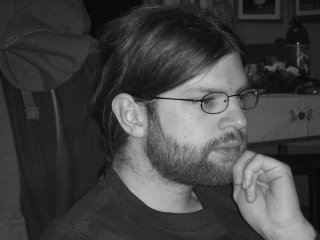Kola Boof is a woman who is shrouded in controversy and even the facts of her life are often disputed. There are some who claim that she is delusional or that she has fabricated events in order to attain publicity but she refutes these claims and maintains that for various reasons there are many in the media who have a vendetta against her. However what cannot be denied is that she is an extremely talented writer.
In order to justice to her art it would probably be better to simply read her works and stay away from the issue of her personal life. But when reading her works the themes which she claims have dominated her life prove to be extremely relevant. Notably issues of race and women’s sexuality.
Kola Boof was born in
She was put up for adoption and eventually was to find a new home in the
It is too easy to become distracted by such controversies and to ignore the quality of work that Boof has produced. What is immediately notable in her poetry, memoirs and fiction is that issues of race and gender are at the forefront of her concerns. To her Black women are the most beautiful and powerful creatures on the planet and she rails against all injustices perpetrated upon women and black people. She renounced both Islam and Christianity, the two traditions in which she had been raised and adopted a Nilotic religion. She also insists on appearing bare breasted in photographs on the covers of her book claiming that it is the tradition of African women not to have to cover themselves and that men force women to hide their bodies as it gives men more control.
She prefers to describe herself as a Womanist rather than a feminist and her work is very much influenced by themes effecting women. In the story Day of Vow she details the story of a young South African woman who was raped by the son of her white employers. Boof brilliantly chronicles the thoughts and emotions of the protagonist Zorina as she describes the class and race structures of modern-day
Themes of race and gender frequently occur in her poetry also. Given the nature of her childhood it is easy to see why race and identity are such an influence on her work. This led her to become politically active also and she claims that she was an intelligence agent for the SPLA. This however like many facts of her life has been verified by some and denied by others. She did however write a poem to commemorate the late John Garang and it was read at his funeral. This poem is quite typical of Boof’s work in the themes it addresses such as race and motherhood. It is reprinted below.
"Choll Apieth"
(black is beautiful)
a Poem by Kola Boof
_____
In the river crossing and coming through us
The egg has not drowned/Our mother’s long war
--hand of Nhialic, The blood
In the river crossing
and coming through us
Behold today/ that cattle have no tongues
And that the earth is cold where Macardit tangles
in the raid of horses/ charging in our wake.
--we have lost our best son
--we, who bring the morning her spears
--we who are like birds/tired of the Crashing
And have seen the Sky
itself
fall against our dreams
Choll Apeith, warriors!
In all my conversations:
the ones who are victorious...the ones
who are praying
Knowing that Papa Garang shall rise again
In the eye of our fists--the chant of our shouting
The Yoke of New Site/golden as sun and birth
This victory of the everborn's heartbeat...steadily rising
Be it on one foot--Garang
(be it on one foot)
Our hero of the landscape
In the river crossing and coming through us.
In all my conversations--
Come through here...river
Bloody Cross and our father rising from it
to deliver this Everborn;
bring us your cattle and your courage--
bloody womb; our mother, the Goddess Sudan.
Enchant us this victory.
His place with God/And no more flesh.
Everborn the victory...and no more flesh.
Garang...Garang
our best son!
And no more flesh.
Bird of the Sky--black as all black put together.
And no more flesh.
We who give birth to you again--and no more flesh.


No comments:
Post a Comment